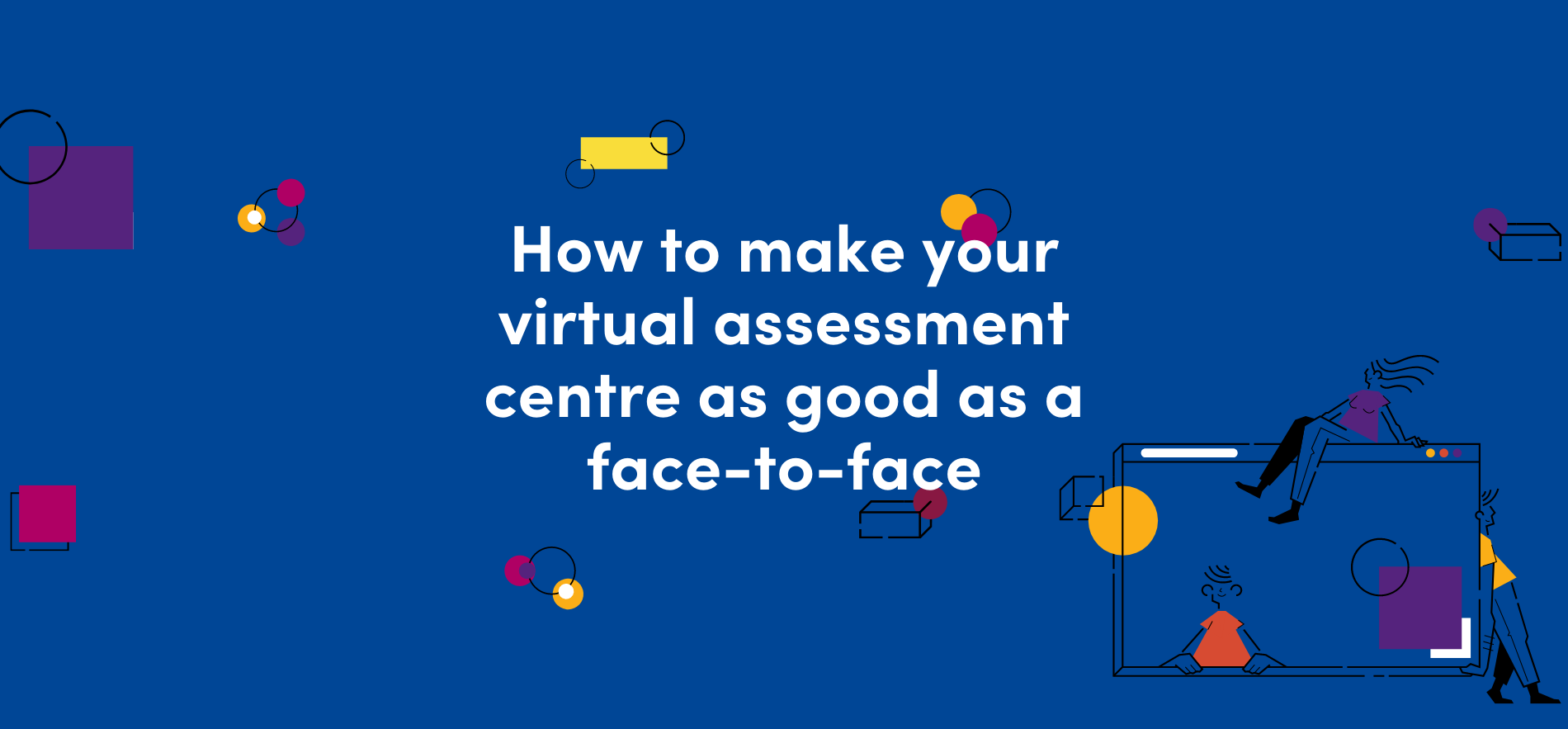Written by Talenscio
When it comes to virtual assessment centres, there are a whole host of benefits that you don’t get from a face-to-face centre – in fact, we’ve written an article on just that!
There are, however, some things that need to be done slightly differently in a virtual world to make a virtual assessment centre just as successful as a face-to-face assessment centre. You can still receive the same benefits, but you just have to think about how to tweak your approach when replicating them in an online world.
Here are our top 3 things that need to be done slightly differently to make your virtual assessment centres just as good as your face-to-face assessment centres.
? Firefighting and spotting errors ?
It’s important to put in a lot of work prior to the virtual assessment centre – in fact, most of the work is front-loaded. This is also true to some extent with face-to-face centres, but the right set up for a virtual centre is critical to the entire day running smoothly.
In a face-to-face centre, you can firefight slightly easier by quickly running off to find the candidate who is meant to be in an activity ‘right this second’. Virtually, if it isn’t on the candidate’s timetable, it’s harder to rectify.
That being said, the benefit of a virtual centre is that you can road test most of the elements before the day. Talenscio makes it easy for the centre administrator to see a universal timetable as well as everyone’s individual agendas. This overview makes it easy to spot gaps or errors quickly and easily.
All in all, with the right attention to detail, virtual centres can be a much smoother experience for everyone!
? Dedicated roles ?
Face-to-face centres can be a bit of an “all-hands-on-deck” situation. Facilitators and assessors can all end up pitching in to help with different things to ensure the day stays on track.
In a virtual world, this doesn’t quite work in the same way. Instead, it’s really important to have specific roles assigned and all participants need to be aware of who is doing what – particularly if candidates or assessors need some help!
Some of the roles you should consider assigning are:
• Front-of-house facilitator – the person who meets and greets candidates in a welcome call and does a presentation about your company and what they should expect from the day.
Candidates’ point of contact – the person who is contactable by candidates if they have any questions. Also the person who will be chasing candidates if they aren’t in the right place at the right time.
• Assessors’ point of contact – the person who is guiding the assessors throughout the day. They’ll need to make sure assessors are in the right video calls, that they’re recording their scores and recording enough evidence.
• Tech guru – a lot of tech issues are caused by local environments or just simple errors. Someone needs to be on-hand to answer the tech-related questions candidates and assessors may have.
• Networking lead – if you’re including networking in your day, there needs to be someone on hand to lead the session and make sure there aren’t any long silences. They may also need to ask questions to prompt conversation or engage any quieter candidates.
• Wash-up facilitator – this person will lead the wash-up. They will need to ensure all scores have been recorded beforehand, that there is enough evidence, and make sure the discussions are objective and kept on track.
? The personal touch! ?
Virtual doesn’t have to mean impersonal! You can still include personal elements throughout the day.
Some of our favourite features built into Talenscio include:
• Meet the assessor page – add a photo, names, job titles and a biography or fun facts section so candidates know who they’re going to meet. The bio section can also prompt conversations about interests, etc. which can be a really important part of a centre!
• Meet the candidate page – add a photo, the candidate’s name, their CV and a pre-recorded video so assessors can get to know the candidates before they meet them.
• Networking sessions – in a virtual format the little bits of conversation between activities can get a bit lost. Why not set up an activity in the agenda for candidates to network with assessors or even current employees in similar roles? This can help to answer any questions candidates have about the day, the recruitment process and your business, and it will let you see how candidates interact in different situations – this can be particularly helpful when looking at cultural fit.
• An assessor’s ‘boardroom’ – it’s always good for assessors to have time to speak to each other – asking questions, sharing experiences, etc. We recommend setting up an ongoing video call for assessors to go in and out of when they’re not in activities. The Assessors’ point of contact can also be located in this room to make answering questions easier.
? Looking to move your interviews or assessment centres online? Take a look at Talenscio… ?
Talenscio is an online tool with a clear purpose: we want to make assessing your current and future talent as easy and effective as possible.
As our world becomes more and more digital, we want to make sure businesses can benefit from the ease that technology provides without compromising on the experience or outcomes of face-to-face centres.
As a system designed by recruiters for recruiters, Talenscio makes recruitment easy in the face of Covid-19, reduces businesses’ environmental impact and brings people together regardless of physical distance and time differences.
Want to find out more? Visit the Talenscio website or book a demo!













